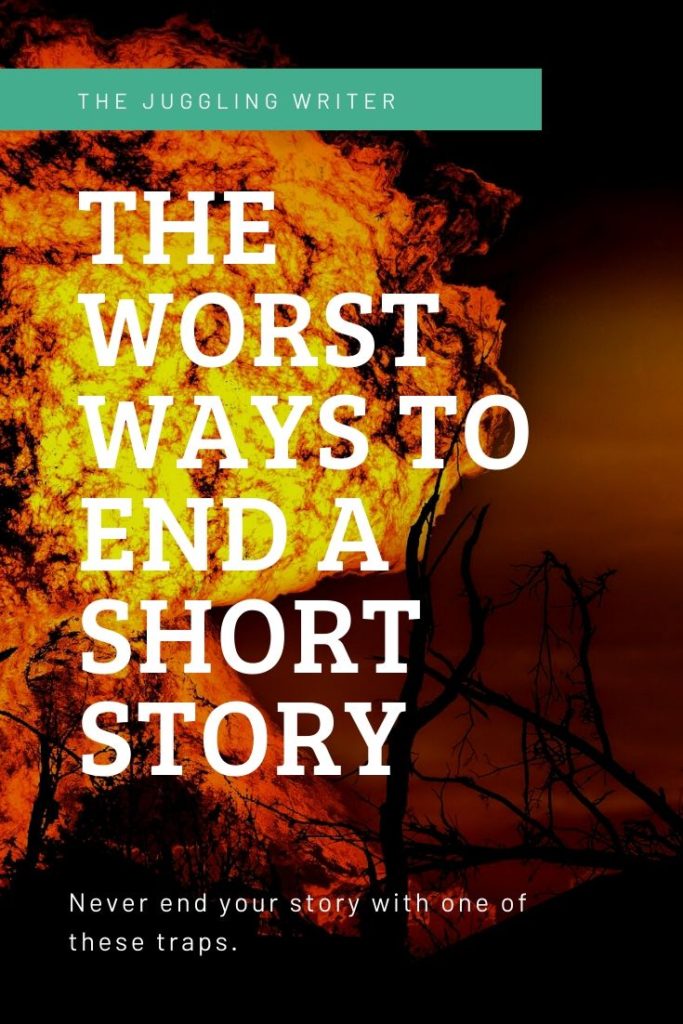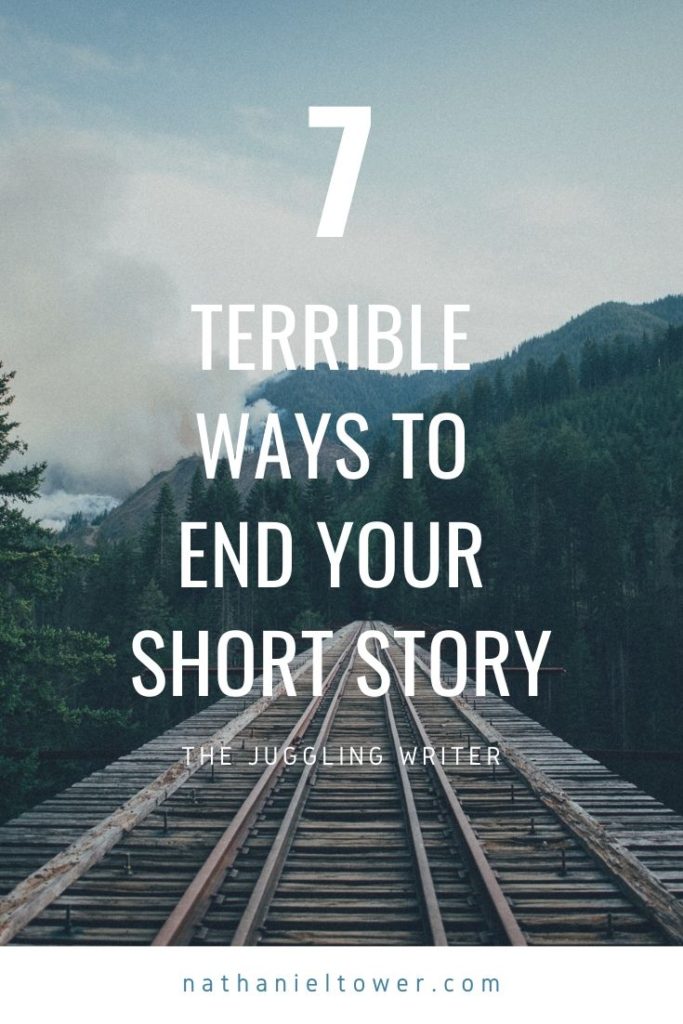Last Updated on February 5, 2023 by Nathaniel Tower
If you really want to simplify things, a short story consists of three components: a beginning, a middle, and an ending.
It’s tough to argue which of these components is the most important:
Beginning – You have to hook the reader right away or they aren’t going to read your story. (Check out this article on fun ways to begin your story.)
Middle – You have to keep the reader engaged or they aren’t going to make it to the end.
Ending – You have to give them something satisfying so they will want to read more of your work (and not curse your name for making them read something that ends in a terrible way). Check out this post to learn more about how to create a great ending.
Those all sound pretty darn important. And they are all equally challenging to do well. I find this is particularly true of the ending. Even really good writers have trouble with writing a solid ending. Both as a writer and a reader, I often find myself frustrated with how a story ends. Some of the best stories I’ve read have lousy endings, and that really sucks if you spend hours invested in reading something.
Since writing is so subjective and almost limitless in terms of possibilities, it’s hard to pinpoint exactly what makes a good ending. So let’s focus on how you shouldn’t end a short story instead. As long as you don’t do one of these things, then you will probably have a pretty good ending.
Kill someone (or everyone)
Ending with death is almost always a cop-out, and it’s one your reader will almost never forgive. Yes, some of the best filmmakers of all time have achieved great endings through death. But short stories that end with someone dying are almost always garbage. This is what the author does when he or she can’t figure out how else to bring a story to a close. Using death as your conclusion will almost always leave your reader disappointed—unless the story has been building to that death the whole time.
Abruptly resolve an impossible problem
Often referred to as deus ex machina, an abrupt resolution to a seemingly impossible problem will usually leave your reader doing one of two things: groaning or screaming profanities at you. Your resolution shouldn’t come out of left field. That doesn’t mean it has to be perfectly logical or completely rooted in reality. But it does have to make sense based on the rest of the story you’ve written.
Tie everything up too neatly
Give your reader some credit. They don’t need everything neatly wrapped up with a perfect little bow. You want to give your readers an ending that will make them think at least a little bit.
Tie up nothing
If absolutely nothing gets resolved, your reader is going to be pissed. The longer your story is, the more pissed your reader will be. It’s one thing to have an open-ended conclusion that allows for interpretation. It’s another thing to give the reader absolutely nothing to interpret. Something should happen at the end of your story.
End a story too soon
A good ending can never be rushed. It has to play out naturally and happen at the right time. If you end the story too soon, your reader may be confused or longing for more—in a bad way.
End a story too late
On the flip side, you don’t want your story to overstay its welcome. Make sure you end the story before the reader gets bored.
Be too predictable
While your reader doesn’t want an ending that’s so outlandish it simply isn’t realistic based on the journey, your reader also doesn’t want the story to end exactly how he or she thinks it’s going to. Give your reader at least a little surprise, even if it’s just in the way you construct the ending.
Final thoughts on ending your short story
Writing a good ending to a short story is no easy feat. But if you avoid the traps mentioned above, you should be able to get your story’s ending in a good place.
The ending of your short story should be realistic and satisfying. If you can confidently say you’ve accomplished both of those things, then you can pat yourself on the back for achieving a good ending.
What are your tips for writing a good ending? Share your thoughts in the comments, and don’t forget to share this post on all your favorite channels.


